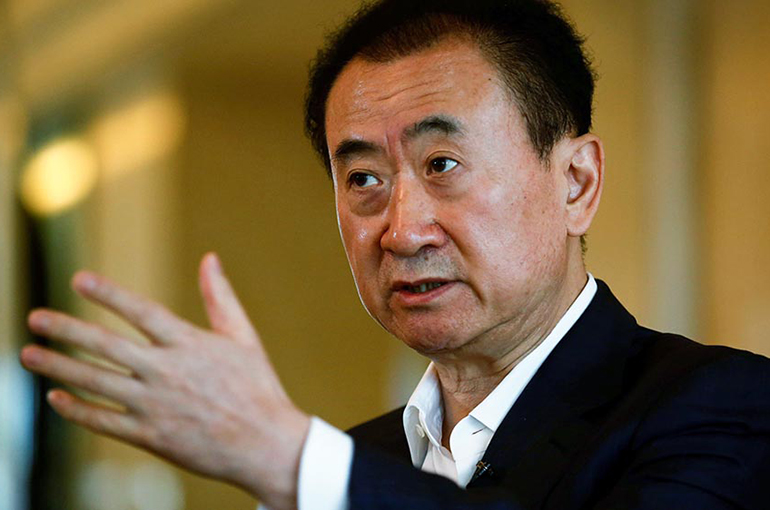 Chinese Property Tycoon Wang Jianlin Gets Luxury Ban After Wanda, Units Fails to Repay USD26 Million
Chinese Property Tycoon Wang Jianlin Gets Luxury Ban After Wanda, Units Fails to Repay USD26 Million(Yicai) Sept. 29 -- A court in China has imposed a luxury spending ban on Wang Jianlin, founder of Dalian Wanda Group and once the country’s richest man, after the conglomerate and its subsidiaries failed to repay debts totaling CNY186 million (USD26 million).
The Lanzhou Intermediate People’s Court yesterday imposed a “high consumption restriction order” on the conglomerate and Wang, its legal representative, according to information on business data platform Qichacha. Among other restrictions, these orders prohibit first-class travel, luxury hotel stays, and property purchases for those failing to meet their debt obligations.
The trigger appears to have been the CNY186 million enforcement case brought by the court against Beijing-based Wanda, Wanda Real Estate Group, and Wang personally.
A person close to Wanda told Yicai yesterday that the issue stems from an economic dispute involving one of the group’s project companies. The source said negotiations are ongoing, and the luxury ban may be the result of information gaps during the enforcement process.
Since the start of this year, legal troubles have mounted for Wanda, once China’s largest property developer, and its subsidiaries. The parent company has faced 10 enforcement cases totaling nearly CNY5.3 billion and 38 instances of frozen equity. Its hotel unit, Wanda Real Estate, has faced 423 enforcement cases involving more than CNY1.8 billion in liabilities.
The underlying cause of Wanda’s frequent equity freezes is its mounting debt, according to Bai Wenxi, vice chairman of the China Enterprise Capital Alliance, a non-profit industry platform. Public judicial records show that nearly every freeze corresponds to a matured, unpaid obligation, including bank loans and trust products.
Another factor is the so-called valuation adjustment mechanism, also known as a “bet-on-agreement,” used during the pre-initial public offering funding round for Zhuhai Wanda Commercial Management, a commercial property arm.
Under the agreement, if Zhuhai Wanda failed to go public by the end of 2023, it would be required to repurchase about CNY38 billion (USD5.3 billion) in shares at an annual interest rate of 8 percent. The failed IPO prompted investor claims, leading to a wave of asset freezes between that year and last year.
As of last September, Dalian Wanda Commercial Management, the parent company's original commercial property arm, had CNY43.9 billion in short-term debt due within a year, while holding only CNY15.1 billion in cash.
Despite selling off assets such as Wanda Plaza shopping malls, the group has recovered less cash than anticipated. Many sales were structured as debt-for-asset swaps, and the resulting liquidity impact remains uncertain.
Wang first topped Forbes China Rich List in 2013, with a net worth of around CNY86 billion. He headed the rankings again in 2015 and 2016, with wealth in excess of USD30 billion.
Editors: Tang Shihua, Emmi Laine